Table of Contents
Should you drink one, two or three litres of water throughout the day? How much is the ideal receive of liquids during the day at the sport performance? Do you know how to hydrate body the right way before, during and after training? Read how to prevent dehydration, how to improve drinking regime and also which drinks are ideal for replenishment of liquids for the sportsmen. Follow this advice and you’ll see that your body will thank you. Take a glass of water and let’s get into reading.
Water is the essence of life because people can live without it only for a few days. Water creates 75% of baby body weight, within adults it is about 55-70%. [1] Regular drinking regime is necessary for human health and the right functioning of organs or maintaining of the inner body balance. Each chemical reaction including production of energy or utilization, process of decomposition and storage of glucose, needs water. Only when your body is hydrated enough, enzymes and hormones can expand their potential and their effect after training is fully expressed. [21]
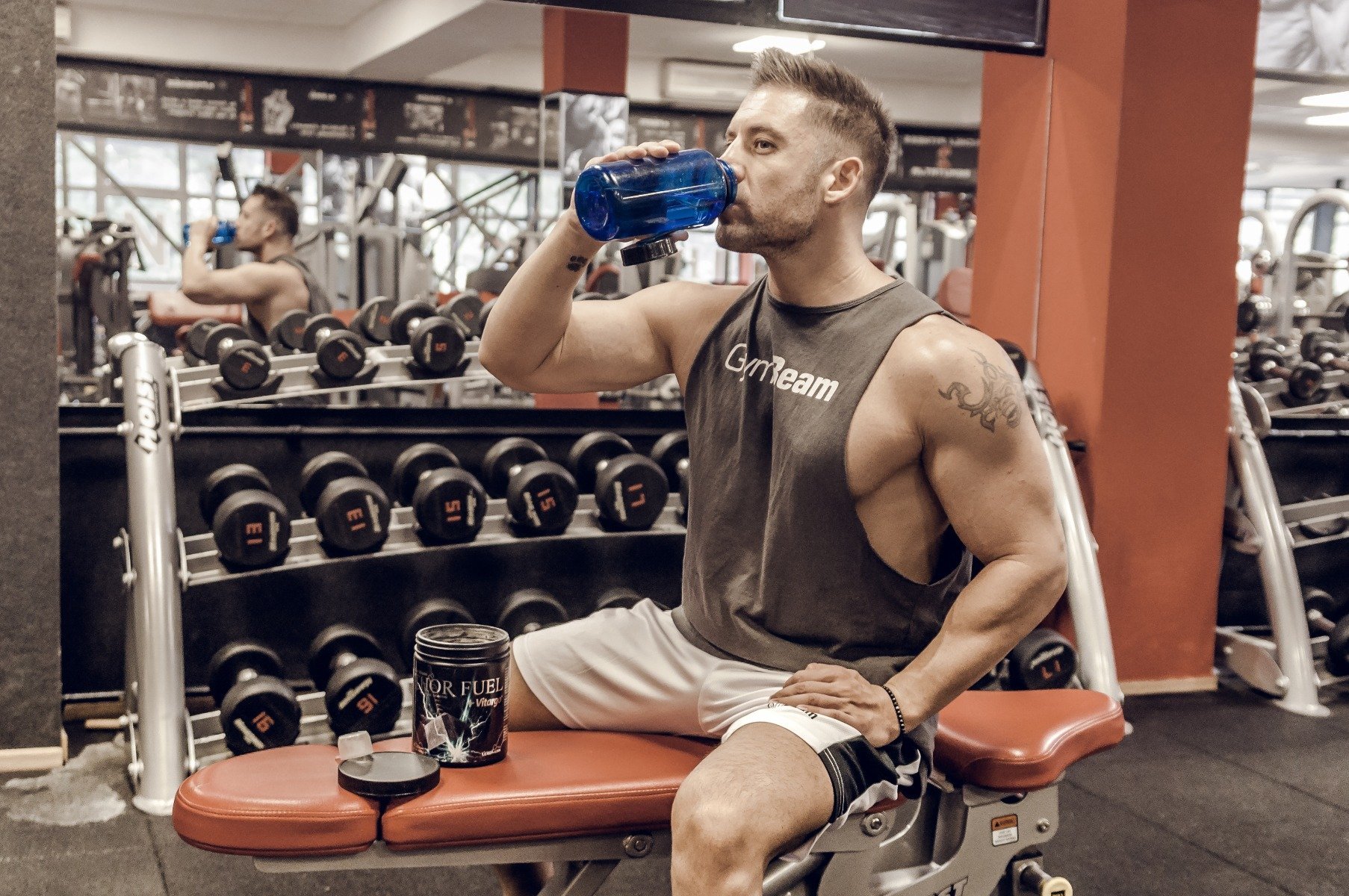
Sources of water and receiving of liquids
Primary source of liquids is water. Liquids can be received into the body also by consumption of food percentually rich of water. It is concerned mostly of watery fruit and vegetable. You can find clearly classified food according to water proportion in the table. [3]
| Percentage of water % | Food |
|---|---|
| 90 – 99 % | milk without fat, watermelon, strawberries, green salad, cabbage, celery, spinach, pickles, cooked pumpkin |
| 80 – 89 % | fruit juice, yoghurt, apple, grapefruit, oranges, carrots, broccoli, pear, pineapple |
| 70 – 79 % | banana, avocado, cottage cheese, ricotta, potatoes, corn, shrimps |
| 60 – 69 % | pasta, leguminous plants, salmon, ice-cream, chicken breasts |
| 50 – 59 % | beef meat, cheese feta, steak |
| 40 – 49 % | pizza |
| 30 – 39 % | bread, pastry |
| 20 – 29 % | pie, biscuits |
| 10 – 19 % | butter, margarine, dried raisins |
| 0 – 9 % | nuts, chocolate cookies, crackers, cereals, pretzels, peanut butter |
| 0 % | oils, sugar |
Amount of water that people receive from drinks and food is changing in dependance upon the style of eating. While in the United States of America, the specialists have estimated that 22% of water comes from food, in European countries this number is higher. Mostly in states where people consume many fruit and vegetable such as in Greece. [2]
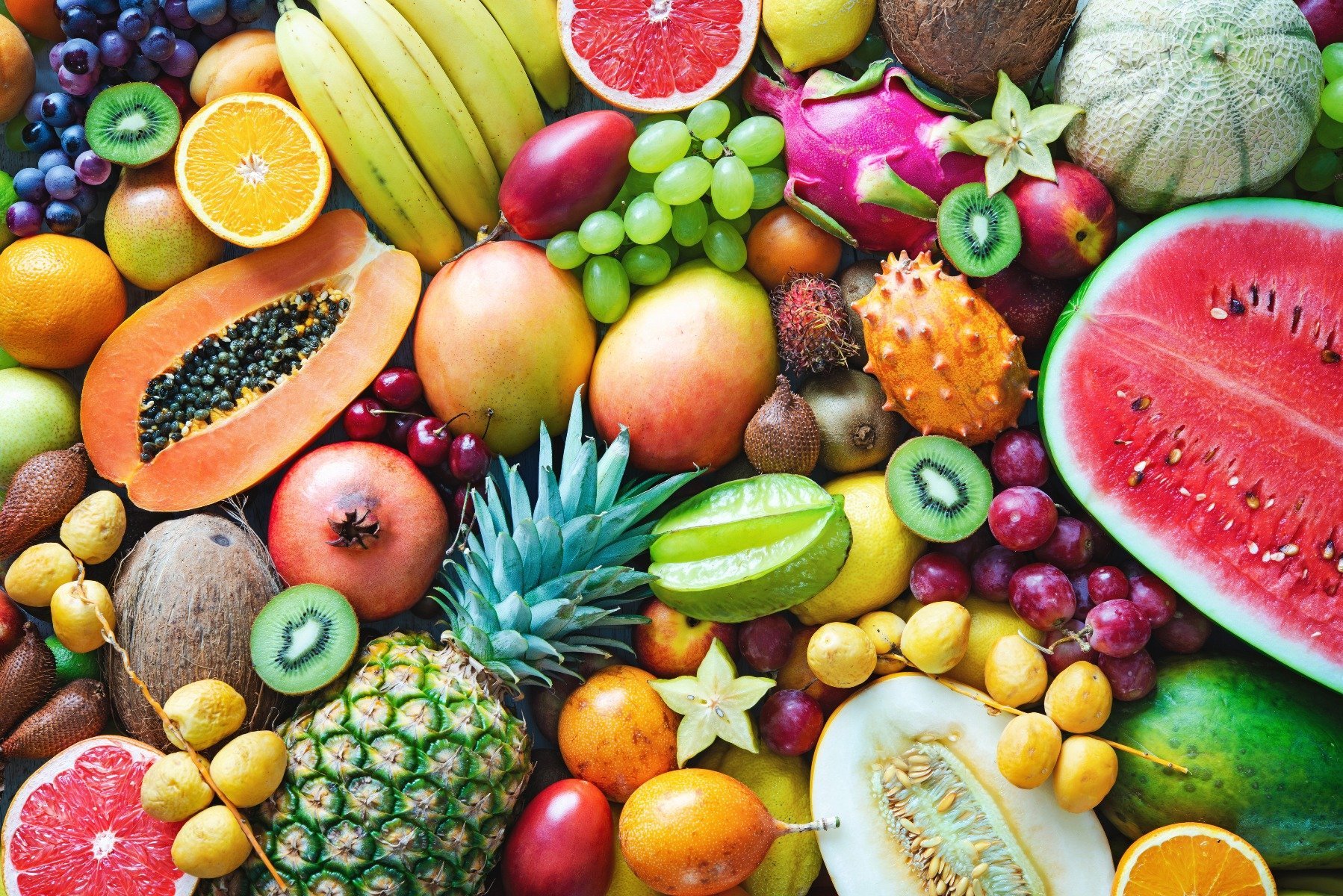
Ideal daily receive of water and liquids
Many people are suffering with the lack of water without knowing it. Only for process of breathing, sweating and excreting we spend 2,5 liters of liquids on a daily basis. This is the reason why general standards mention minimum receive of liquids for 2-3 liters per day. [21] It is the smallest amount and there is need to be increased at the sport activity or during hot summer days.
It means that you should drink at least 8-12 glasses of water daily, while 5 of them should be composed of pure water. However, this measure is ideal during days in which you don’t have training.
The good way how to calculate the ideal daily receive of liquids is to multiply 50 ml with number of kilograms of your body weight. [21] For example, 80 kg x 50 ml = 4000 ml, and therefore if you weigh 80 kg, your daily receive of liquids from food and drinks should reach 4 litres. Your optimal liquid receive can be calculated by the means of hydrating calculator.
Dehydration as a problem of lacking water
The opposite of hydration is dehydration. The term of dehydration can be understood as reduction of liquid volume in organism, therefore negative balance of water in the human body. It can be caused by the non sufficient recieve of liquids or increased loss of liquids as the consequence of excessive sweating or excreting. According to the standards, dehydrated person is the one that loses more than 2% of the body weight due to lack of liquids. [17] Dehydration is a disease which can be characterized by the symptoms such as:
- drought of the mouth
- minimum peeing during day
- overall weakness
- dizziness
- dark colour of urine
- dried cracked mouth
- bad elasticity of skin – after sting, your skin doesn’t get back to the original place [17]
The symptoms of dehydration don’t need to be underestimated and that is why we recommend regular drinking regime in order to avoid health complications which cause dehydration.
You might be interested in these products:
Health consequences of dehydration
Dehydration is a serious health problem and can even have lethal consequences when person is without liquids for 3 – 4 days. [25] Among serious consequences of dehydration we include: [15] [16]:
- delirium which can lead to dementia and it endangers mostly older or sick people
- problems of kidneys functioning
- worse heart activity
- headaches
- cracked and dried skin
- digestive problems
- chronic diseases which don’t originate only because of dehydration but in consequence of various factors among which dehydration dominates
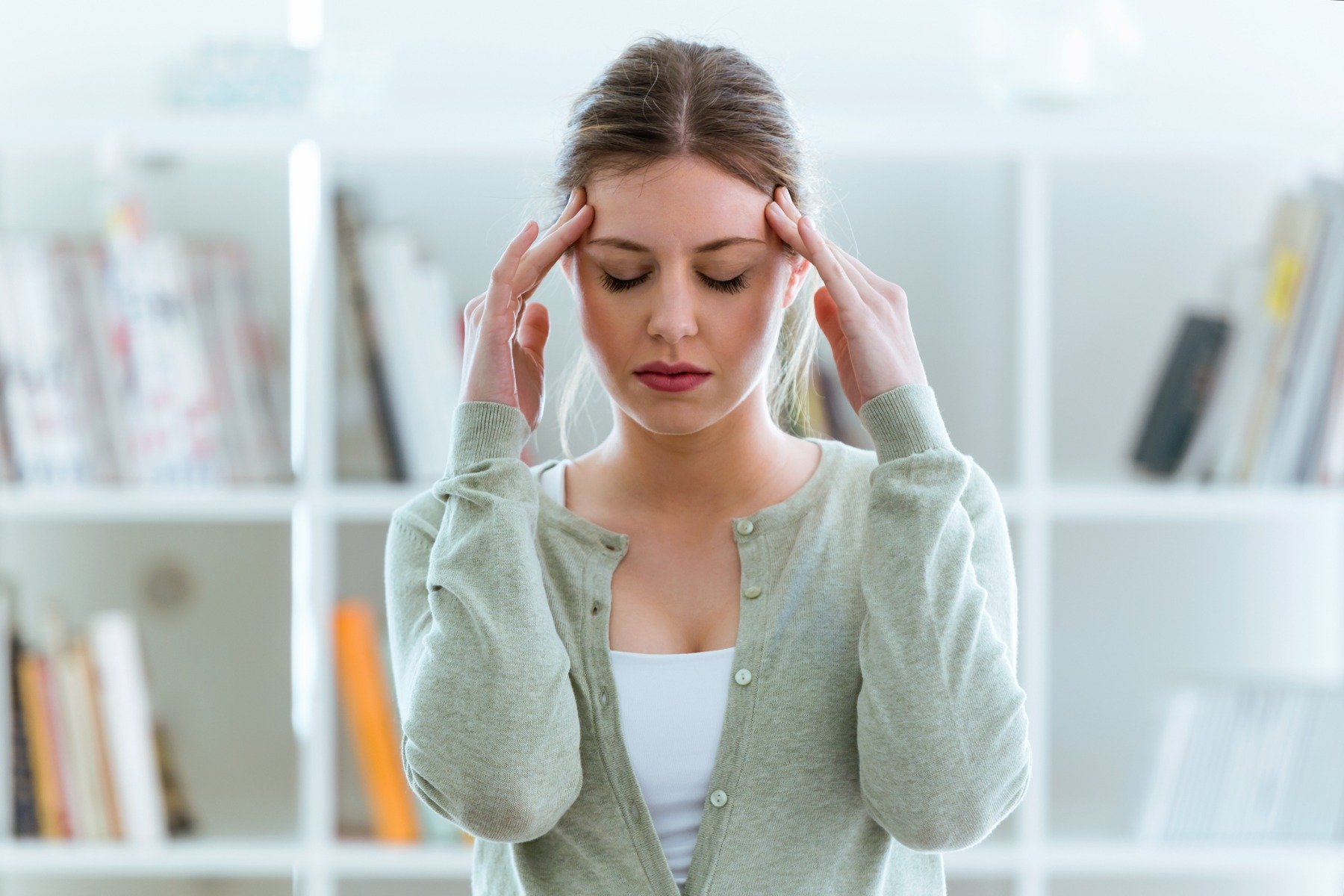
Basic tips on how to prevent dehydration of organism
The best prevention is following the regular drinking regime also in the time when you are not thirsty or when you notice the warning signals of dehydration on your body. These few advice can help you to create a habit to receive water and to protect yourself from the lack of liquids.
- If you exercise, take care of your regular drinking regime before, during and after training.
- Receive liquids according to in advance prepared schedule. Mostly at time of warm weather or at sweating you can’t just rely that thirst feeling will come.
- If you don’t have time to watch your liquids receive, install the application to your phone which will do it instead of you and will remind you every time when it is time to drink.
- Control urine color. When it has apple juice color, you are probably dehydrated. When your urine is in color or light yellow, your liquid amount is all right.
- Take the bottle of water with you and drink a little regularly every 15 – 20 minutes.
- Avoid drinks containing caffeine, cola drinks, coffee and tea. These are diuretic and can dehydrate you.
- Avoid alcoholic drinks. Also glass of beer is more diuretic than hydratic.
- Wear adequate layers of clothing according to seasons in order not to overheat or sweat. When exercising, wear only one layer of light clothing made of quality materials. As soon as possible, change the clothes after training.
- When you suddenly feel tired, you have a headache or dizziness, drink the water.
Everyone should protect from dehydration but mostly sportsmen which are endangered by the lack of liquids and minerals due to sweating and exercising in warm air.
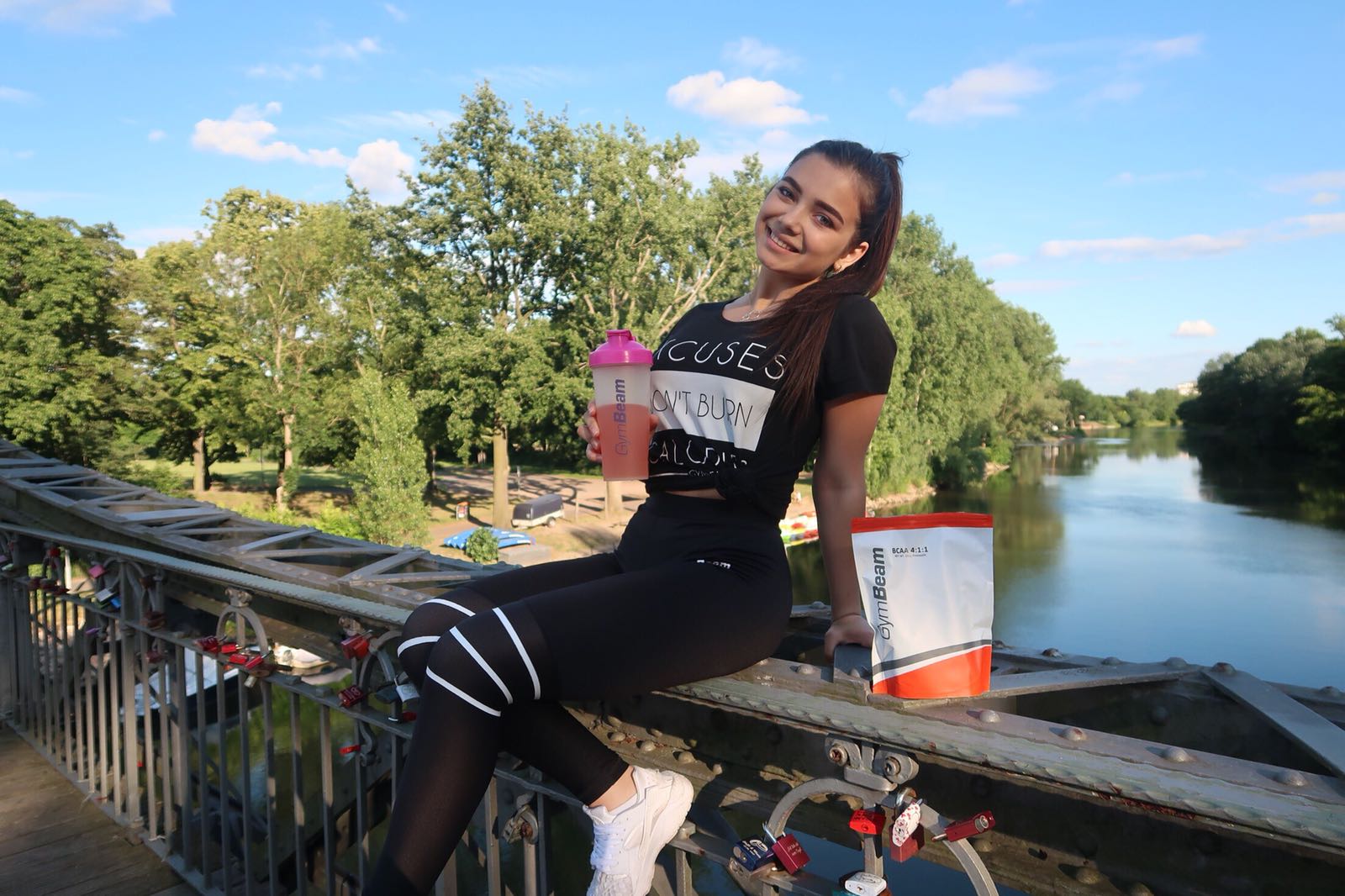
Receiving of liquids at the sport
Did you know that years ago sportsmen had been told that receiving of liquids is dangerous? Development of awareness of the right hydration at the sport had been developing throughout the years. It is very interesting how each century promoted different idea of the hydration sphere. If you had been running marathon in 1900, you would have been advised that it is harmful to drink liquids through the competition. Champion Jackie Meckler who won Comrades Marathon five times, had run this 89 km track for less than 6 hours with minimum of liquids. About drinking regime he commented the following: “To run a marathon without replenishing of any liquids had been considered as the main goal of runners and proof of success in fitness. [18]
The same way, Tom Simpson, master of the world in cycling in 1960 who said that four small bottles of water for long track such as Tour de France is fully sufficient. According to him, cyclists should avoid drinking during racing mostly in the warm weather. It is only a question of strength and will. [18]
Pre-dispensing with liquids
One extreme had been alternated by another, pre-dispensing with liquids has become the trend in sport. Increased water receive is equally dangerous as liquid absence. Many of liquids cause plasma dilution and low sodium levels. This condition can be known by the term hyponatremia which can have lethal consequences. The first reported case of death of hyponatremia is from year 1981 when marathon runner had died of “water intoxication”. Throughout the years 1985-2002, there was the idea of exaggerated liquid receiving among sportsmen mostly in the sphere of endurance sports. Doctors, the specialists and advertisements in this time recommended to drink 1200 ml per hour and this caused 247 cases of hyponatremia, out of these cases, 7 were lethal ones. [18]
After the year 2007, the situation has calmed down and now we are aware that if we drink more than we sweat, we will be in trouble. The already mentioned 2% dehydration has stabilized as the upper limit. [18]
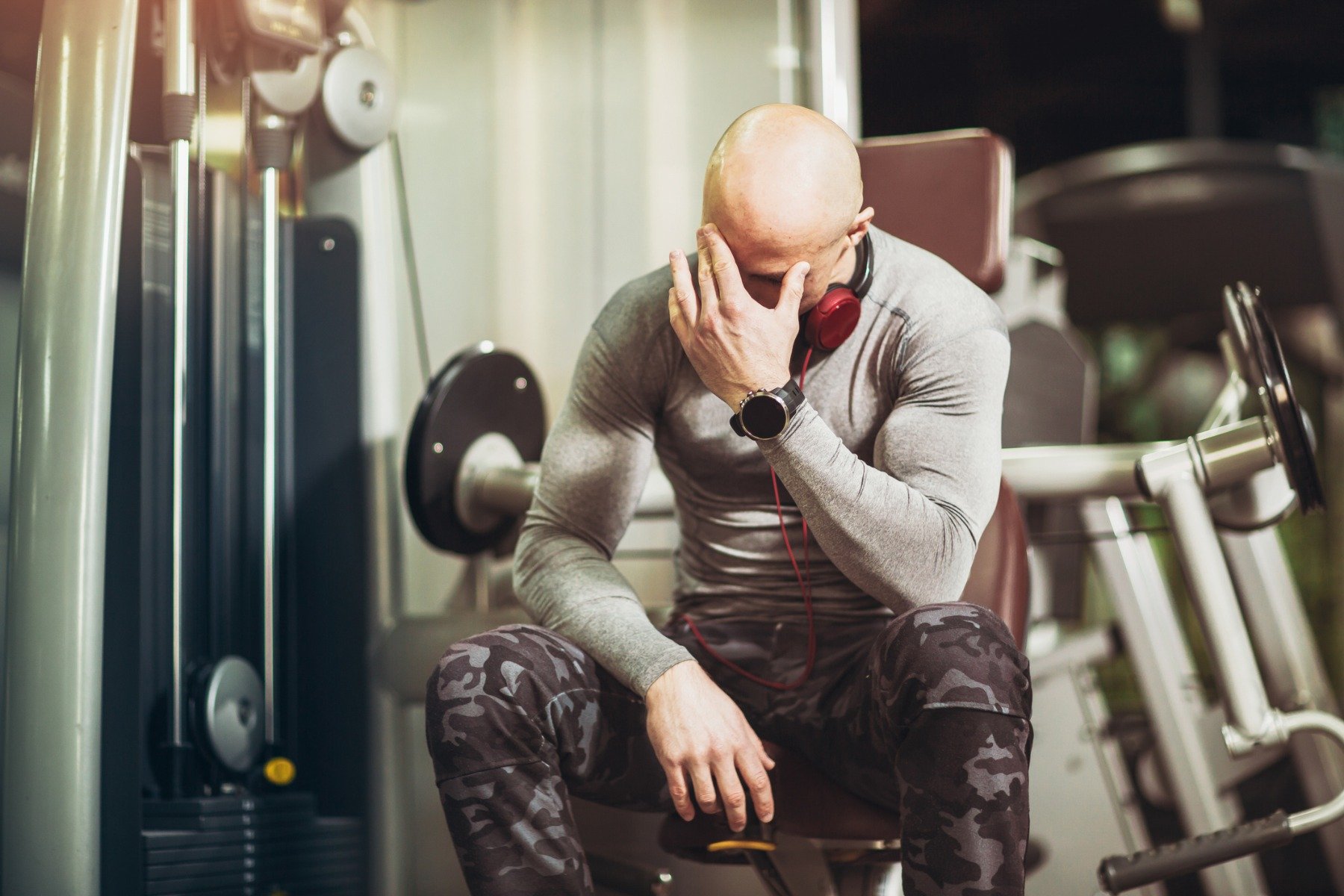
Dehydration within sportsmen
It is common that sportsmen during training lose 6-10% of body weight in consequence of sweating which can lead to dehydration if they do not replenish the liquids in the right amounts. Voluntary liquid receive is usually lower than sweated amount of water. [17] The symptoms can be noticed even in mild form of dehydration within sportsmen:
- lowering of power
- weak endurance
- increased tiredness
- bad thermoregulation
- bigger effort for physical activity [6] [7]
These are the reasons why it is important to hydrate body and at the same time, to lower oxid stress in consequence of exercising. Research has confirmed that mostly beginning sportsmen are exposed to risk of dehydration in consequence of sudden physical activity increase.
Influence of temperature for dehydration during sport
Many studies confirm that sportsmen are more susceptible to dehydration when they are exercising at higher temperatures in contrast to trainings in mild climate. [11] [12] [13] Through one hour of exercising, sportsman loses approximately 4 glasses of liquid in dependance upon body weight and speed of sweating. More intensively he trains and the surrounding around him is warmer, more water he sweats. [5] Sport in warm temperatures and non sufficient liquids receive can have serious consequences from long-term aspect such as:
- fever
- stroke
- heart problems
- low blood pressure
- weak flow of blood to the muscles [14]
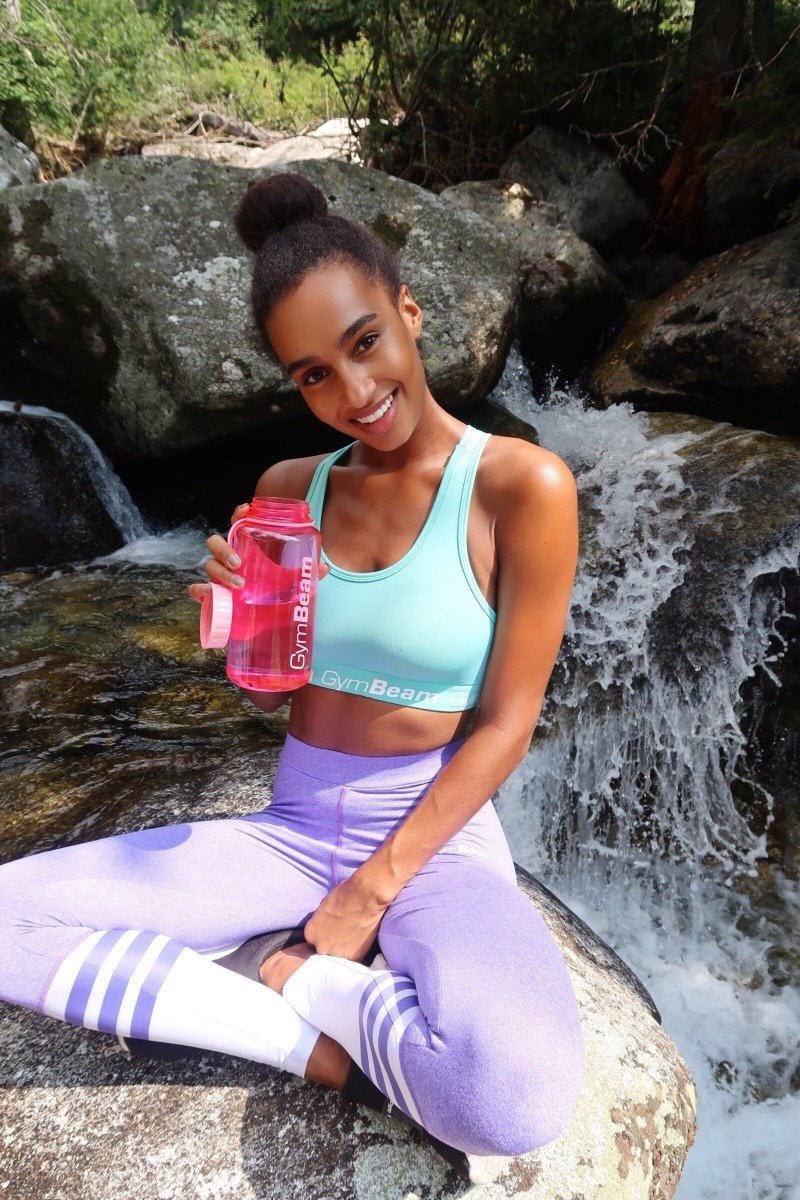
Dehydration during training
If you notice symptoms of dehydration which we have mentioned during training or at the end of training, do the following:
- stop exercising and rest
- go away of the sunny or warm environment and cool down
- get off the redundant clothing
- have a sport drink for hydration to replenish liquids and minerals
- drink at least 2 litres of water for the following 2 – 4 hours
- rest for the next 24 hours and continue in replenishment of liquids
- you should be feeling better in a few hours, although the body rehydrates throughout 36 hours sometimes [17]
If you want to avoid the problems caused by dehydration, you should receive liquids regularly before, during, after training and continuously during the day. We will reveal the optimal proportion of liquids in a moment.
Hydration before, during and after training
In this section we will be talking about the ideal amount of liquids in before-training phase, during training and after physical activity. At the same time, you will find out which drinks are suitable for liquid replenishment. [22]
Receive of liquids before training
Whether you are about to work out, run, ski or swim, you should drink at least 2 glasses of water 2 hours before training. Half an hour before training, replenish 250 ml of water. [22] It can be pure water or you can choose a product which will supply you with energy and will help you to increase power during training. We recommend pre-workout drinks, such as BCAA drink or iontic drink.
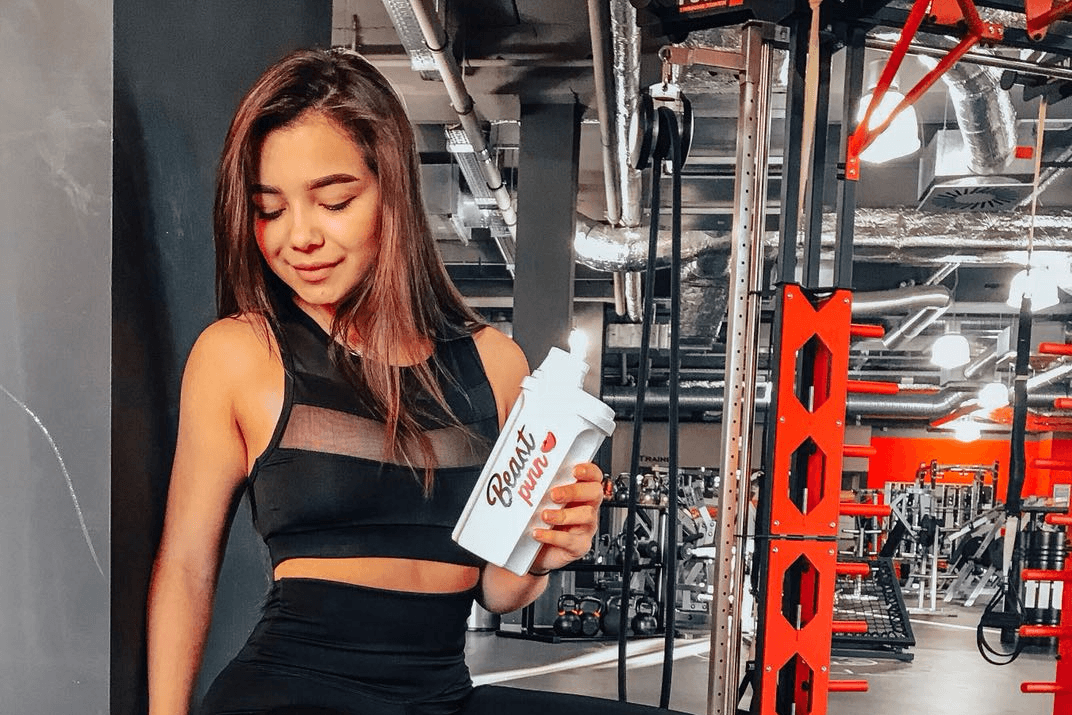
Before choosing the right product, don’t forget to read its composition. The ideal combination before training is 14 g of carbohydrates, 28 mg of potassium and 100 mg of sodium per 250 ml. Carbohydrates in drink should come from glucose, sucrose or fructose because they are quickly and easy to digest. Be careful that your pre-workout drink is bubble free, it can irritate your stomach. [4]
Receiving of liquids during training
During physical activity, try to drink 100 -150 ml of liquid every 15 – 20 minutes. It will help you to keep muscles hydrated and to reduce tiredness feeling. [4]
The suitable drinks during a workout are vitamin waters or amino acids. To have an imagination how the right hydration during training seems, we prepared a table for you in which there is compared liquid receive according to the gender. Information in table are illustrated on the example of a 28 years old man and woman during physical activity in common environment. [20]
| Gender | Training intensity | Training duration | Amount of water |
|---|---|---|---|
| ŽENA 168 cm 65 kg | Low | 60 minutes | 700 ml |
| Low | 90 minutes | 1 000 ml | |
| medium | 60 minutes | 800 ml | |
| medium | 90 minutes | 1 300 ml | |
| High | 60 minutes | 1 000 ml | |
| High | 90 minutes | 1 500 ml | |
| MUŽ 178 cm 85 kg | Low | 60 minutes | 700 ml |
| Low | 90 minutes | 1 100 ml | |
| medium | 60 minutes | 900 ml | |
| medium | 90 minutes | 1 300 ml | |
| High | 60 minutes | 1 000 ml | |
| High | 90 minutes | 1 600 ml |
Receiving of liquids after training
If you want to be very exact, to weight before and after training is the best. For each 0,5 kg of excreted water, you should replenish half a liter of liquid. [4] If you exercise more than hour, drink fruit juice diluted with water, or iontic drink or RTD drink which will provide the sufficient amount of vitamins, carbohydrates for supply of energy and minerals for supply of electrolytes which you had sweated during exercising (sodium, potassium, magnesium). [4] If you are not used to the bottle drinks, try coconut water which contains a sufficient amount of potassium, magnesium, calcium and phosphorus. [20]
People who have more salty sweat, should hydrate body with combination of pure water together with sport drinks during and after exercising to avoid hyponatremia (low sodium level in blood in consequence of excessive water). Sodium together with potassium and magnesium is excreted from the body by sweating and that is why it is important to supply these electrolytes. The same way, people who sweat more than the others should receive higher amount of liquids after training than the recommended standards. [20]
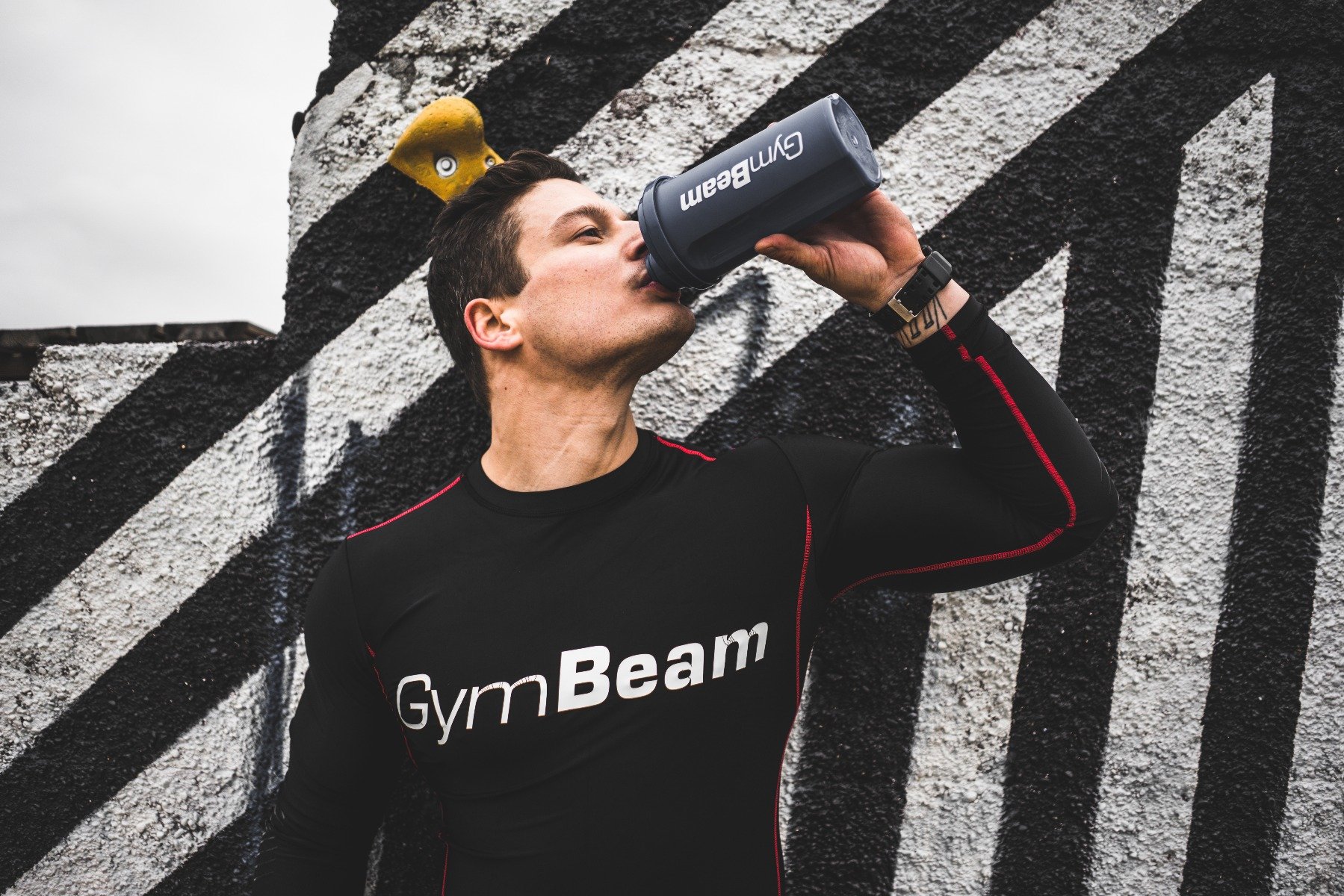
Sportmen are used to create made-to-measure hydrating plan with the help of the specialists. It is a schedule of liquids receive which minimizes loss of water and helps to maintain balanced liquid level.
Not suitable sources of liquid before, during and after training
Flavoured sweet waters and fruit juices are not suitable source of liquids. Drinks with high sugar content are dehydrating and can’t be used to replace glass of water. If you don’t like pure water, buy the flavoured, caloric-free mineral waters which don’t contain sugar. You can also try to add mint leaves, lemon or other fruit pieces to the fitness bottle with water. You can also dilute glass of water with fruit juice but ultimately keep your body hydrated all the time.
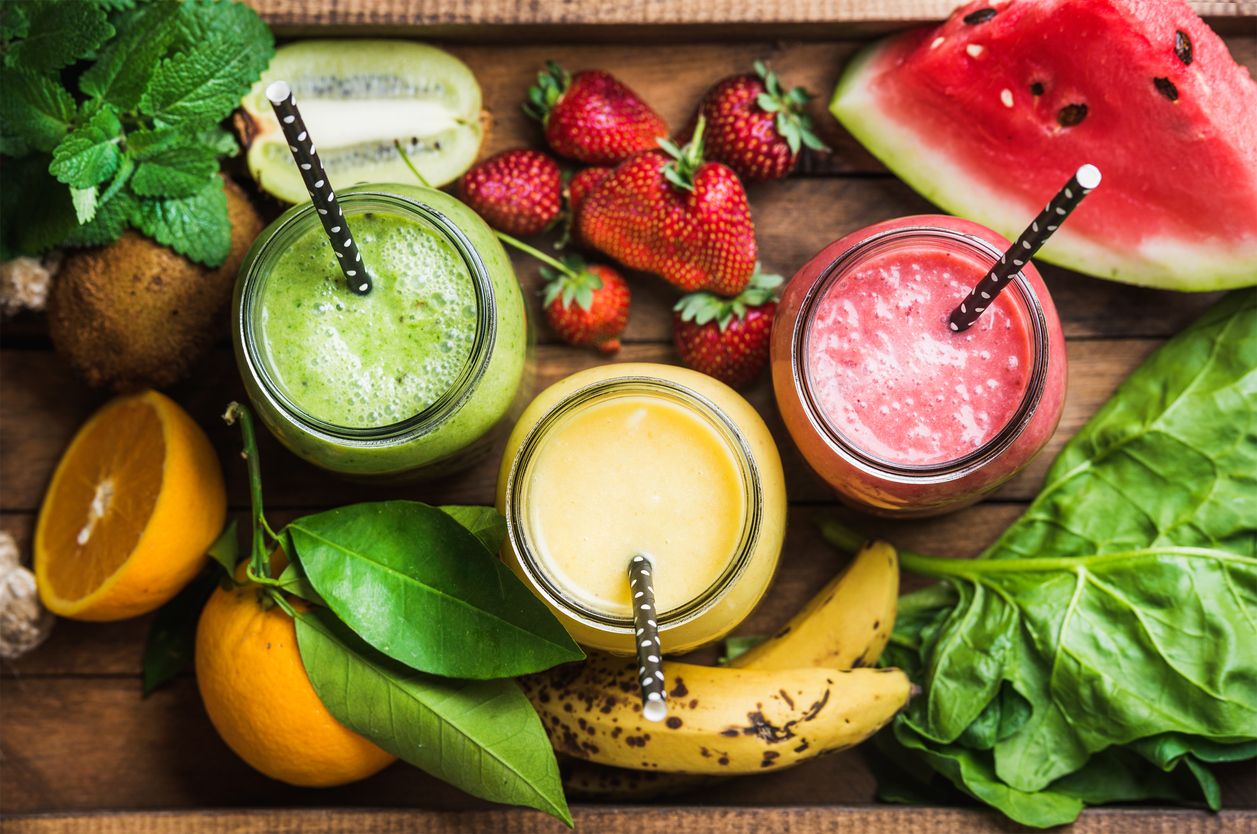
Which drink is your favourite one before, during and after training? Do you choose from sport drinks or you prefer pure water? Write us down to the comments what forms your drinking regime. We will be glad that you support the article by sharing in order to get your friends to know about hydration.
[1] Nicolaidis S. Physiology of thirst. In: Arnaud MJ, editor. Hydration Throughout Life. Montrouge: John Libbey Eurotext; 1998. p. 247.– https://www.ncbi.nlm.nih.gov/pmc/articles/PMC2908954/#R1
[2] Moreno LA, Sarria A, Popkin Bm - The nutrition transition in Spain: a European Mediterranean country. – https://www.ncbi.nlm.nih.gov/pubmed/12373620
[3] Altman P. Blood and Other Body Fluids. Washington DC: Federation of American Societies for Experimental Biology; 1961. – https://www.ncbi.nlm.nih.gov/pmc/articles/PMC2908954/#R1
[4] Kathleen M. Zelman, Drink Up for Sports and Fitness, The best beverages to help you stay hydrated - – https://www.webmd.com/fitness-exercise/features/drink-up-sports-fitness#1
[5] Carolyn J. Strange - Feel Your Best With Water - – ttps://www.webmd.com/food-recipes/features/feel-your-best-with-water#1
[6] Montain SJ, Coyle EF - Influence of graded dehydration on hyperthermia and cardiovascular drift during exercise. - – https://www.ncbi.nlm.nih.gov/pubmed/1447078
[7] Cheuvront SN, Carter R, Sawka MN - Fluid balance and endurance exercise performance. - – https://www.ncbi.nlm.nih.gov/pubmed/12834575
[8] Paik IY, Jeong MH, Jin HE, Kim YI, Suh AR, Cho SY, Roh HT, Jin CH, Suh SH - FLuid replacement following dehydration reduces oxidate stress during recovery. - – https://www.ncbi.nlm.nih.gov/pubmed/19344695
[9] Bergeron MF, McKeag DB, Casa DJ, Clarkson PM, Dick RW, Eichner ER, Horswill CA, Luke AC, Mueller F, Munce A, ROberts WO, ROwland TW - Youth football: het stress and injury risk - – https://www.ncbi.nlm.nih.gov/pubmed/16118592
[10] Godek SF, Godek JJ, Bartolozzi AR - Hydration status in college football players during consecutive days of twice-a-day preseason -– https://www.ncbi.nlm.nih.gov/pubmed/15827364
[11] Cheuvront SN, Carter R, Sawka MN - Fluid balance and endurance exercise performance. - – https://www.ncbi.nlm.nih.gov/pubmed/12834575
[12] Cheuvront SN, Carter R, Castellani JW, Sawka MN - Hypohydration impairs endurance exercise performance in temperate but not cold air. - – https://www.ncbi.nlm.nih.gov/pubmed/16024524
[13] Kenefick RW, Mahood NV, Hazzard MP, Quinn TJ, Castellani JW - Hypohydration effects on thermoregulation during moderate exercise in the cold. - – https://www.ncbi.nlm.nih.gov/pubmed/15045503
[14] Maughan RJ, Watson P, Shirreffs SM - Heat and cold: what does the enviroment do to the marathon runner? – https://www.ncbi.nlm.nih.gov/pubmed/17465618
[15] Culp KR, Wakefield B, Dyck MJ, Cacchione PZ, DeCrane S, Decker S. - Bioelectrical impedance analysis and other hydration parameters as risk factors for delirium in rural nursing home residents. - – https://www.ncbi.nlm.nih.gov/pubmed/15345731
[16] Lawlor PG - Delirium and dehydration: some fluid for thought? - – https://www.ncbi.nlm.nih.gov/pubmed/12353122
[17] Gastrolyte - Physical exercise: dehydration and sport - – https://gastrolyte.com.au/dehydration/dehydration-and-sport/
[18] Caster Semenya, Oscar Pistorius - Fluid intake, dehydration and exercise: Part I// History of fluid intake and conflict of interest - – https://sportsscientists.com/2007/10/fluid-intake-dehydration-and-exercise-part-i-history-of-fluid-intake-and-a-conflict-of-interest/?doing_wp_cron=1543477151.4426190853118896484375
[19] Caster Semenya, Oscar Pistorius - Fluid intake, dehydration and exercise: part IV -– https://sportsscientists.com/2007/10/fluid-intake-dehydration-exercise-part-iv/
[20] Melanie Pinola - How Much Water You Should Drink before, during and after exercise - – https://lifehacker.com/how-much-water-you-should-drink-before-during-and-aft-1520633778
[21] How much should an athlete drink - and why? - – https://www.freeletics.com/en/blog/posts/much-athlete-drink/
[22] Hydration for Athletes - – https://familydoctor.org/athletes-the-importance-of-good-hydration/
[23] S. M. Shirreffs - Hydration in sport and exercise: water, sports drinks and other drinks - – https://onlinelibrary.wiley.com/doi/full/10.1111/j.1467-3010.2009.01790.x
[24] William M. Adams, Douglas J. Casa - Hydration for football athletes - – https://www.gssiweb.org/en-ca/Article/sse-141-hydration-for-football-athletes
[25] Dina Spector - Here´s how many days a person can survive without water - https://www.businessinsider.com/how-many-days-can-you-survive-without-water-2014-5]

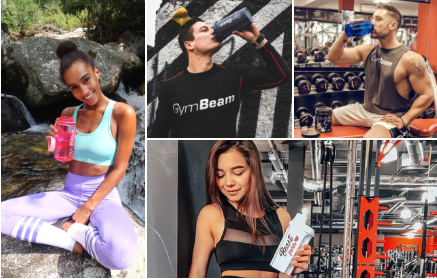
Add a comment